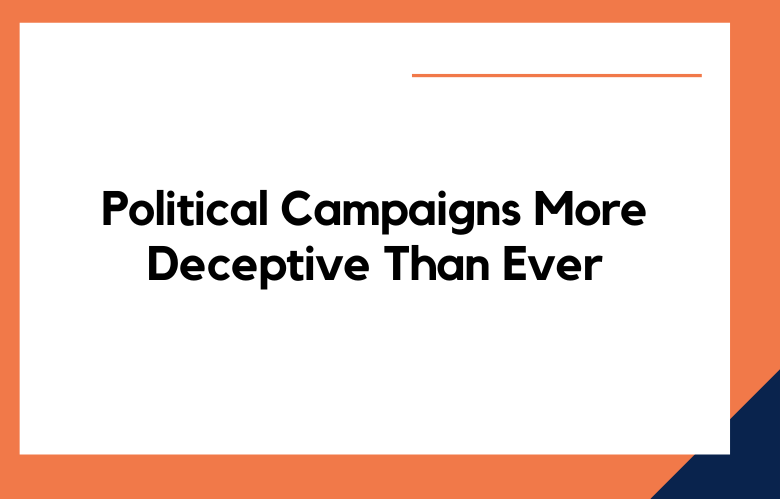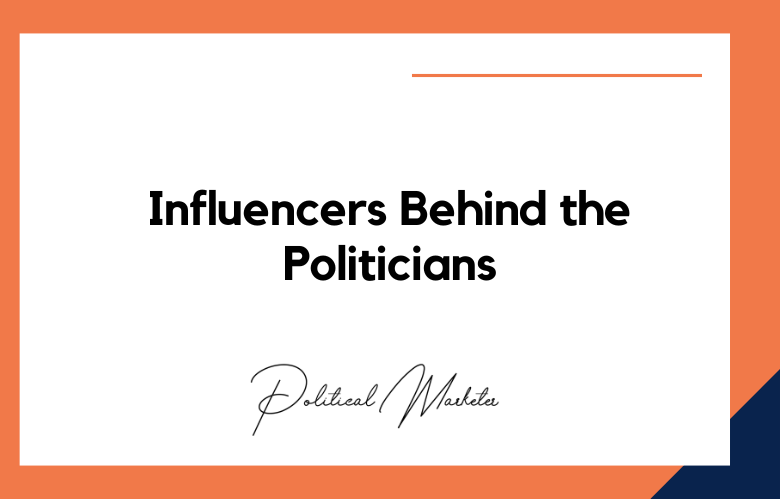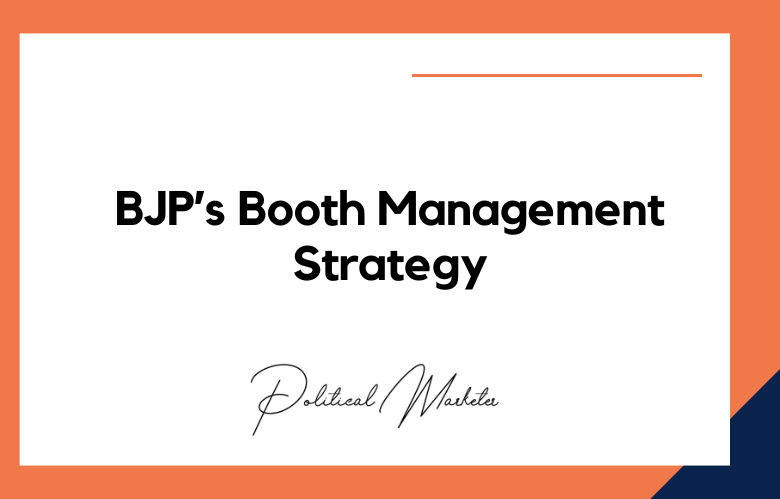Political campaigns have been known for being full of deception and manipulation for many years now. However, with the advent and ongoing advancements in artificial intelligence (AI), political campaigns can become even more deceptive than ever before.
AI has created various possibilities to exploit people’s online behavior, develop and spread fake news, and manipulate their emotions. We will examine how AI can make political campaigns more deceptive than ever before.
Deceptive Decisions: How AI Enhances Political Campaign Strategies
As technology advances, political campaigns find new and innovative ways to utilize Artificial Intelligence (AI) to improve their strategies.
In recent years, AI has become a popular tool in political campaigning due to its ability to analyze vast amounts of data and provide insights to help make more informed decisions.
One primary way AI has been incorporated into political campaigns is through predictive analytics.
This involves analyzing voter data such as demographics, voting history, and social media activity to create profiles and predict voting behavior. Campaigns can then use this information to create targeted messages and outreach efforts tailored to specific voter groups.
Artificial Intelligence: The Silent Manipulator in Political Campaigns
The influence of artificial intelligence (AI) in political campaigns has been a growing concern in recent times. With their powerful analytic capabilities and vast data processing abilities, AI-based systems have been used to manipulate and target voters based on their individual preferences and interests.
One of the most notable ways AI has been used to manipulate political campaigns is through social media platforms. With millions of active users, social media has become a central battleground for political campaigns.
AI-powered algorithms analyze user data, patterns, and preferences to create targeted advertisements and personalized content that catch the attention of potential voters.
The Ris of AI Misinformation in Political Campaigns
In recent years, the rise of artificial intelligence (AI) has dramatically transformed the way political campaigns are conducted.
While AI technology has the potential to offer significant benefits to political campaigns, such as improved targeting and more efficient resource allocation, it has also introduced a new and alarming challenge in the form of AI misinformation.
AI tools, such as deep learning algorithms, can create highly believable fake news stories, social media posts, and videos that are difficult to distinguish from actual content.
This creates an entirely new avenue for politicians and interest groups to propagate false or misleading information that can sway public opinion and influence the outcome of elections.
Unmasking AI: The Dark Side of Political Campaigning
Political campaigning has dramatically transformed in recent years with the widespread use of Artificial Intelligence (AI) technologies. However, despite the hype around AI’s potential benefits, there is growing concern about its darker side, especially in political campaigning.
Various tactics and techniques characterize AI’s use in political campaigning, including personalized messaging, microtargeting, and data manipulation. These tactics exploit people’s data to target them with tailored messages, often designed to appeal to their emotions and prejudices.
At the heart of these tactics are algorithms trained to analyze data on individuals’ online behavior, preferences, and other characteristics. This data is then used to construct detailed profiles of individuals, which can be used to target them with specific messages or advertisements.
M”microcar” eating
With the help of AI, political campaigns can “now micro-target specific groups of voters based on their online activity, interests, and backgrounds.
AI algorithms can analyze data on the internet to create a voter profile. Political campaigns can then tailor their messaging to that specific audience, making the message more relatable and appealing to that particular group.
While this can be helpful for candidates to personalize their message, it can also be used to deceive voters by skewing the information presented to them to sway the vote in a particular direction.
Deepfakes
Deepfakes are AI-generated videos, images, or audio that appear natural but are entirely fabricated. Political campaigns can make use of deepfakes to create phony speeches from their competitors and manipulate public opinions.
Deepfakes can also be used to create baseless accusations and fake endorsements or attack advertisements, fooling the public into believing they are genuine. As deepfakes become more sophisticated and realistic, it is challenging to differentiate between real and fake.
Chatbots
Chatbots are a popular, AI-based technology that can mimic human conversations. They have been used by many political campaigns to create a more responsive and interactive online presence.
However, chatbots can manipulate voters by targeting specific groups to spread false information or physically attack opposition candidates online.
Voters may believe they’re conversing with a human being but are instead reacting with a highly sophisticated algorithm designed to mislead them purposely.
Data Collection and Analysis
AI algorithms can collect social media data, creating profiles of individual users and their interests, political views, personal lives, and online behavior.
After analyzing the data in detail, campaigns can use this information to create personalized ads, select the best times to post or who to target on social media, and predict users’ likely voting preferences.
This data can be exploited in the worst-case scenario, leading to potential cyber-attacks by foreign governments and other malicious actors.
Emotional Manipulation
Thanks to the power of AI, political campaigns can analyze and predict voters’ emotional states and well-being by examining their online voters ‘ online voters ‘ online voters ‘ actions, such as tweets, Facebook posts, and other social media activities.
Campaigns can use this data to create messages that exploit people’s fears, hopes, and biases.
Emotional manipulation can be a campaign tool and create false narratives and misleading information, leading to more confusion among voters.
The Future of Political Campaigns: The Deceptive Role of AI
Artificial Intelligence has been making tremendous progress in transforming various aspects of our lives. The influence of AI is broad and far-reaching, enveloping many previously unexplored areas.
One factor that AI technology could impact is Political Campaigns. Advances in AI present new opportunities for political parties and candidates to connect with voters. However, some exciting and tricky features of AI have the potential to make campaign messaging more deceitful than ever.
Conclusion:
In conclusion, AI has made political campaigning more efficient and effective than ever, but it also presents several risks of deception and manipulation.
Using microtargeting, deepfakes, chatbots, data collection, and emotional manipulation, campaigns can create false narratives, spread misleading information, and even publicly attack competitors.
It is crucial to recognize these risks and to work against them by scrutinizing the sources of information we consume and educating ourselves about the dangers of deceptive campaigns.
Ultimately, we should demand more political messaging and campaigning transparency to ensure the information presented is accurate, unbiased, and factual.
Call: +91 9848321284
Email: [email protected]
Ways AI Can Make Political Campaigns More Deceptive Than Ever: FAQs
What Are The Risks Of AI In Political Campaigns?
AI can be misused to create deceptive content, manipulate public opinion, and fabricate images or voices that mislead voters about candidates or policies.
How Can AI Generate Fake Political Content?
AI tools can produce deepfakes, synthetic speeches, manipulated videos, or entirely fake personas that appear authentic to the public.
Why Is AI-Powered Deception More Dangerous Than Traditional Misinformation?
Because AI-generated content is often hyper-realistic, scalable, and tailored for individuals, it is harder to detect and more convincing than traditional propaganda.
What Role Do Deepfakes Play In Political Deception?
Deepfakes allow malicious actors to show politicians doing or saying things they never did, which can damage reputations and mislead voters.
How Can AI Exploit Voter Data For Manipulation?
AI can analyze vast voter databases to craft micro-targeted messages that manipulate emotions, beliefs, and behaviors without transparency.
Is It Easy To Detect AI-Generated Political Content?
Not always. Some advanced AI-generated content is nearly indistinguishable from real content without forensic tools or verification systems.
Can AI Create Fake News Articles For Political Gain?
AI language models can write realistic but false news stories, blog posts, or press releases to push specific narratives or discredit opponents.
What Is Synthetic Amplification In Campaigns?
Synthetic amplification involves using bots and AI tools to artificially boost political messages or hashtags, making them appear more popular than they are.
Are AI Chatbots Being Used For Voter Manipulation?
AI-powered chatbots can impersonate campaign volunteers, spread disinformation, or simulate conversations to sway undecided voters.
Can Generative AI Be Used To Impersonate Political Figures?
Yes, voice cloning and face-generation AI can create convincing impersonations that deceive the public.
Why Is Regulating AI In Political Campaigns Challenging?
Rapid advancements, jurisdictional limitations, and evolving tactics make it difficult for regulators to keep pace and define clear legal boundaries.
Can AI Be Used To Fabricate Voter Sentiment?
Yes, fake polls, reviews, and social media comments generated by AI can give the illusion of widespread support or opposition.
How Does AI Enable Mass Personalization Of Political Lies?
AI can personalize false messages based on individual interests and behavior, making them more persuasive and harder to fact-check across audiences.
Are There Any Global Standards For AI In Political Campaigns?
Currently, there are no universally enforced standards. Some countries have introduced guidelines, but global coordination remains limited.
Can Political Campaigns Use AI Without Being Deceptive?
Yes, AI can be used ethically for data analysis, audience segmentation, and performance tracking—without manipulating or misleading voters.
How Do Algorithms Contribute To Political Echo Chambers?
AI algorithms often prioritize engagement, showing users more of what they already agree with, which can deepen polarization and reduce exposure to diverse views.
What Makes AI Disinformation So Hard To Combat?
AI disinformation spreads quickly, evolves rapidly, and can overwhelm human fact-checkers with sheer volume and realism.
Can AI Target Voters With Contradictory Messages Simultaneously?
Yes, AI allows campaigns to send different, tailored messages to different voter groups, even if those messages conflict.
How Are Political Deepfakes Distributed At Scale?
They are often shared via social media, messaging apps, and AI-boosted content farms that drive reach without centralized oversight.
What Can Be Done To Prevent AI Deception In Campaigns?
Solutions include mandatory content labeling, transparency laws, AI auditing frameworks, media literacy education, and collaboration with tech platforms.











